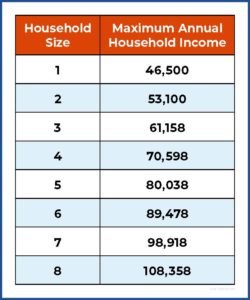Pop-up Energy Counseling
Pop-up energy counseling is designed to be a specialized Energy Education and Resource visit. You will spend approximately 20-30 minutes discussing your energy-related concerns and need(s) with a trained Energy Educator. This meeting can be scheduled at a public location (i.e. library, community center, local utility office, etc.). The process for the counseling includes:
- Intake Interview
- Energy Counseling
- Energy-related Referrals (if applicable)
- Energy Advocacy (if applicable)
Do I Qualify?
The Energy Educator will review the documents listed below for proof of eligibility. Once the income requirement is confirmed, the Energy Educator will complete a brief intake form of your basic household information.
Documentation requirements for proof of eligibility:
- Photo ID for the applicant
- At least one or more utility bills
- Proof of income (pay stub or W-2) or proof of benefit (Social Security; Supplemental Security Income; Temporary Assistance for Needy Families; General Assistance; Special Supplemental Nutrition Program for Women, Infants and Children; and/or food-stamps award letter)

Energy Counseling
The goal of energy counseling is to create energy awareness and reduce home energy needs and thereby the need for future energy assistance. The Energy Educators will give you recommended low-cost and no-cost tips for improvement, review your energy bill and discuss the impact of the utility bill on your overall household budget.
Energy-Related Referrals
The Energy Educator will use available resources to offer you referrals to energy-related programs that could assist you with an energy-related burden. For a more detailed list of available referrals, visit our Resources Page.
Energy Advocacy
If you have any other barriers or concerns with your electric bill and/or utility provider, it is beneficial to participate in energy advocacy. Through partnerships with the various utilities, the Energy Educator will contact the utility, with your permission, in order to assist with the account. This could include delinquencies, disconnects, requesting more detailed information, budget billing and/or creating payment-plan arrangements.

